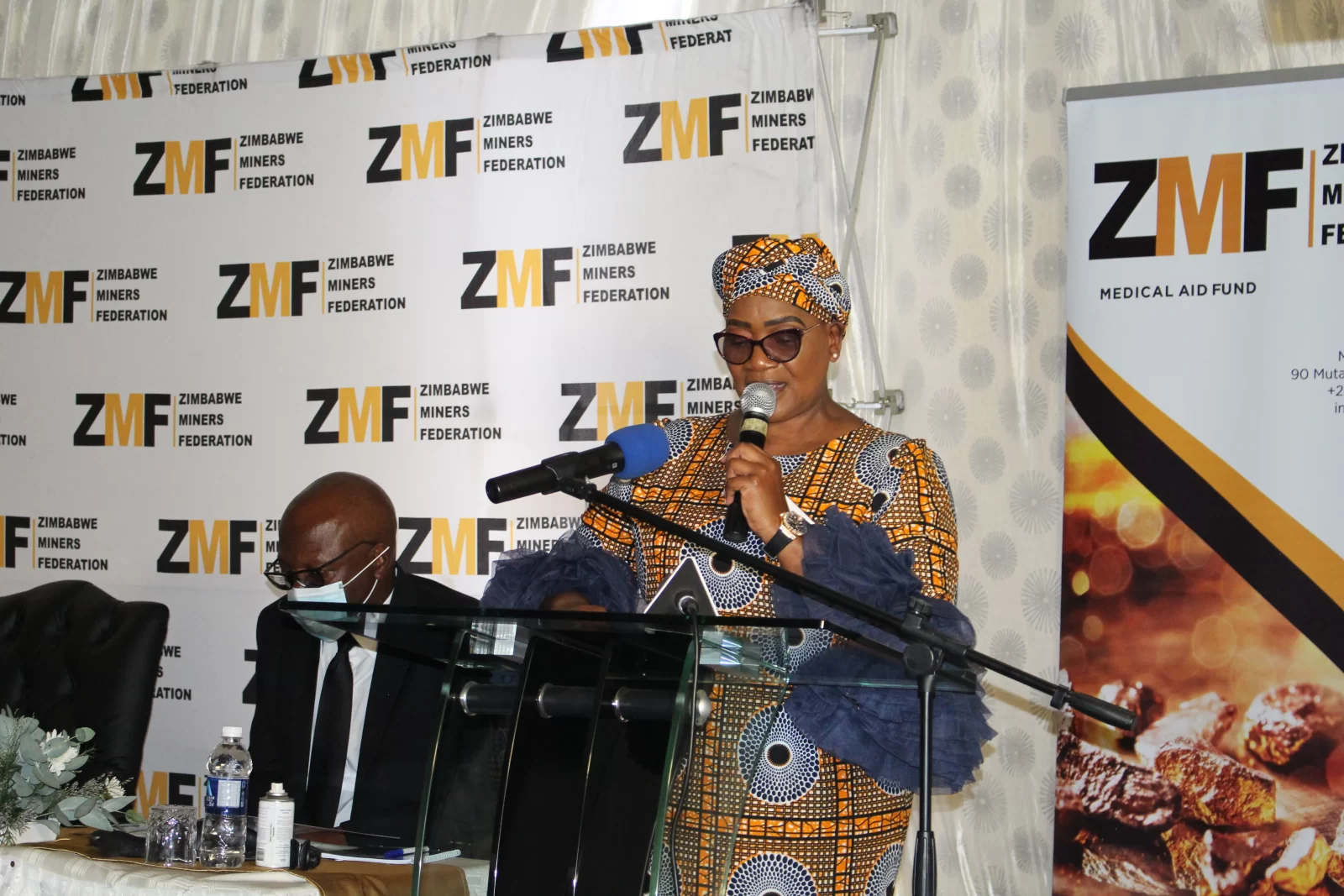‘Uhuru has main-streamed blacks into mining sector’

ZIMBABWE’S Independence has brought about significant economic empowerment for the previously marginalised black majority who now actively participate in the country’s mainstream economy, including through mine ownership and influential executive posts in leading local and foreign owned mining entities.
The southern African country attained its Independence on April 18, 1980 after a protracted and painful liberation struggle that emancipated Zimbabwe from the yoke of British colonial rule.
In separate interviews, indigenous players in the mining industry said, as Zimbabwe prepares to celebrate 42 years of Independence on Monday next week, there are a number of gains that the sector has achieved on the back of the freedom that the country now enjoys.
The Zimbabwe Miners Federation (ZMF) president Henrietta Rushwaya, whose organisation is the mother body of the small-scale mining sector in the country said, “Before Independence, mining was a preserve of the whites, no black person was allowed in the sector in terms of being actively involved. The indigenous people were not allowed to be conglomerate owners where we see black people now running the big mining companies.
But with the advent of Independence, they are now owning the mines.”
Through Independence, she said native Zimbabweans were now spearheading the mining sector through entities such as Kuvimba Mining House while production and the mining sector’s contribution to the fiscus has improved remarkably.
For example, earnings in the mining sector increased to US$5,2 billion last year from a base of US$2,7 billion in 2017.
“We are now our own liberators in the mining sector. For example, last year earnings from the mining sector were US$5,2 billion, a contribution which we were not part of prior to the attainment of Independence,” said Ms Rushwaya.
Under the Second Republic, Zimbabwe is targeting a US$12 billion mining economy by 2023 driven by minerals such as gold, platinum, diamond, lithium, coal and chrome, among others.
This milestone is anchored on pillars such as resuscitation of closed mines, increasing output by existing mines as well as investment in state-of-the art mining technology.
In line with the envisaged growth, the ZMF president said it was imperative for the Government to repeal some laws within the mining sector that are now archaic and were enacted to pursue the interests of the colonial regime.
“Acts such as the Gold Trade Act (Chapter 21:03) need to be revisited, it was enacted on the 1st of September 1940. It is an Act to prohibit the possession of gold by unauthorised persons and to regulate dealings in gold, and for other purposes connected with the foregoing.”
In addition to the gains of Independence, Ms Rushwaya said women were now able to participate in the mining sector, which was previously a male-dominated industry.
This she said promotes gender equality as well as boosting productivity in the mining sector as more and more people participate in the economic development of the country.
“The Second Republic has even made it more possible for players in the mining sector, particularly the small-scale mining industry to boost output through the 100 percent forex retention. As the small-scale mining sector, we feel indebted to the Government and we should also reciprocate by delivering our (mineral) output through the formal channels,” she said.
Despite a host of positives that have been registered in the mining sector as a result of Zimbabwe’s attainment of Independence, Ms Rushwaya said the Government should ensure that more land being held for speculative purposes, particularly by big mining houses, is released and allocated to prospective miners.
“Through the ‘Use-it-or lose it’ policy, the land that is held for speculative purposes by big companies should now be released to organised miners.
“The small-scale mining sector should also be made a preserve of the indigenous Zimbabweans,” she said.
In 2020, the Ministry of Mines and Mining Development announced that it had through the “use it or lose it” policy started repossessing mining concessions that were lying idle across the country.
Under the first phase of the unused mining land repossession programme, the Government targeted 213 mining concessions.
Bubi Small-Scale Miners Association advisor Ishmael Kaguru said the country had achieved great strides towards improving indigenous people’s participation and boosting output in the mining sector.
“We have achieved a lot in the sense that small-scale miners are now recognised in the country as economic players. For example, the small-scale mining sector has been decriminalised unlike in the past where the Government ran operations such as Operation Chikorokoza Chapera targeting artisanal and small-scale miners.
“As a result, in terms of production we are above that of big miners and we encourage the Government to continue supporting the small-scale mining sector. For the past 15 years, the small-scale mining industry, particularly the gold sub-sector has been dominating in terms of output producing at least 60 percent of Zimbabwe’s total production,” he said.
Last year, the country produced 29,6 tonnes of the yellow metal rising by 55,5 percent from the 2020 deliveries.
From the 2021 output, the small-scale mining sector delivered 18,5 tonnes.
“And this year, we are hoping to have between 40 and 50 tonnes of the total gold deliveries with the bulk of it still coming from the small-scale mining industry. The Government should continue availing more loans and incentives to boost output,” said Mr Kaguru.
The chairperson of the Gwanda-based United Women Miners Association Ms Sithembile Ndlovu echoed similar sentiments as Ms Rushwaya saying the attainment of Independence turned the tide in the realm of Zimbabwe’s economy as women are now involved in mining.
“Women have as a result of the freedom that the country enjoys are now able to participate in the previously male-dominated mining sector. They now own mining claims and that’s a huge milestone for our country.
“We are appealing to the President (Mnangagwa) that there are women who get into mining but without claims and there are these Exclusive Prospecting Orders (EPOs), let the prospective women in mining peg claims. Let them be given an opportunity and those that succeed should be given the necessary support,” she said.


